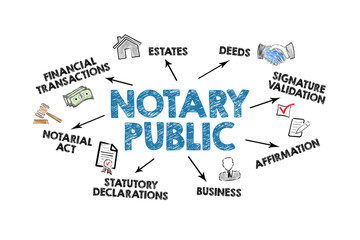
Legal document certification is crucial for both domestic and international legal processes. Whether you require notarization for local validation or an apostille for global acceptance, understanding the differences between these two methods is key. This guide offers clear insights into apostille versus notarization, helping Nepalese audiences ensure their documents are secure and legally compliant.
What is Notarization?
Notarization is the process of having a document verified by a licensed notary public. The notary’s role is to:
- Verify Identity: Confirm that the signers are who they claim to be.
- Witness Signatures: Ensure that the signers understand the document and are signing voluntarily.
- Maintain Records: Keep a record of the notarization for legal reference.
In Nepal, notarization is a trusted method for validating documents such as affidavits, power of attorney, contracts, and wills. Notaries play an important role in safeguarding against document fraud and ensuring that legal documents meet the required standards. For more details on the legal weight of notarized documents, see Understanding the Legal Weight of Notarized Affidavits in Court.
What is an Apostille?
An apostille is a specialized form of certification used to authenticate documents for international use. It is issued by designated authorities in a country that is a member of the Hague Apostille Convention. The apostille:
- Confirms Authenticity: Certifies the origin of the document.
- Simplifies International Use: Eliminates the need for further legalization by foreign embassies.
- Ensures Uniformity: Provides a standardized format accepted by all member countries.
For individuals and businesses in Nepal looking to use their documents abroad, an apostille is essential. This process is particularly useful for educational documents, business contracts, and other documents that need to be recognized in foreign jurisdictions. To learn more about the benefits and process of apostille certification, refer to Understanding the Process and Benefits of Apostille of Documents.
Detailed Comparison: Apostille vs. Notarization
Both notarization and apostille serve to verify documents, yet they do so in different contexts and serve distinct purposes. Here is a detailed comparison to clarify the differences:
Key Differences
- Purpose:
- Notarization: Confirms the identity of the signers and the authenticity of the signatures. It is mainly used for domestic legal processes.
- Apostille: Validates the document for international use, ensuring it meets the standards of the Hague Convention.
- Authority:
- Notarization: Performed by licensed notary publics who are recognized under local laws.
- Apostille: Issued by designated government authorities or authorized bodies under the Hague Convention.
- Usage:
- Notarization: Commonly required for affidavits, contracts, wills, and other legal documents used within Nepal. For more on notarization benefits, see How Documents Notarization Protects Against Document Fraud.
- Apostille: Needed when documents are to be used internationally. It ensures that documents are recognized abroad without the need for additional authentication.
- Process:
- Notarization: Involves personal appearance before the notary, verification of identity, and signing of the document in the notary’s presence.
- Apostille: Often follows notarization; the document is then sent to a designated authority for the apostille certification.
Practical Considerations
- Cost and Time: Notarization is usually a quicker and less expensive process, while obtaining an apostille can be more time-consuming and may involve additional fees.
- Document Type: Determine the type of document you have and its intended use. If the document will be used internationally, an apostille may be necessary; for domestic use, notarization is typically sufficient.
- Legal Requirements: Always verify the legal requirements specific to your document and jurisdiction. In Nepal, local regulations may dictate the preferred method for document authentication.
The Notarization Process in Nepal
Notarization in Nepal is carried out by licensed notaries who adhere to strict legal standards. The process involves several important steps to ensure the integrity of the document:
- Verification of Identity:
The signer must present valid identification documents (such as a passport or government-issued ID). This step is crucial to prevent fraud and ensure that the person signing the document is indeed who they claim to be. - Document Review:
The notary reviews the document to ensure that it is complete and that all necessary information is provided. The signer is asked to read the document to confirm understanding. - Signing in the Presence of the Notary:
The document must be signed in the presence of the notary. In some cases, additional witnesses may be required. - Notary Certification:
After verifying all details, the notary signs, stamps, and records the notarization. This certification is then affixed to the document as proof of its authenticity. - Record Keeping:
The notary maintains a record of the notarized documents, which may be referred to in legal disputes or future authentication processes.
For practical tips on avoiding errors during notarization, consider reading How to Speed Up the Documents Notarization Process Without Errors.
The Apostille Process
The apostille process is essential when documents need to be accepted internationally. Although it often follows notarization, it involves additional verification steps:
- Initial Notarization:
Many documents first require notarization by a licensed notary public. This initial step verifies the document’s authenticity within the local jurisdiction. - Submission to the Designated Authority:
The notarized document is then submitted to the relevant government authority, which in Nepal might include departments or ministries responsible for international document certification. - Issuance of the Apostille:
The designated authority reviews the document and issues an apostille certificate. This certificate is affixed to the document, signifying that it meets the international standards set by the Hague Convention. - International Recognition:
Once an apostille is attached, the document is recognized by all countries that are members of the Hague Convention, simplifying cross-border transactions and legal procedures.
For additional insights into the process and benefits of apostille, visit How Apostille of Documents Protects Against Document Fraud.
When to Use Notarization vs. Apostille
Choosing between notarization and apostille depends on the intended use of your document. Here are some common scenarios to help you decide:
- Domestic Use in Nepal:
- Notarization is typically sufficient for documents that will be used within Nepal. This includes legal affidavits, contracts, wills, and powers of attorney.
- Related services such as Documents Notarization and Affidavits and Sworn Statements can provide additional support.
- International Use:
- If your document will be used in another country, an apostille is necessary to ensure that it is accepted abroad.
- Services like Apostille of Documents and Legalization of Documents are designed to facilitate this process.
- Business and Legal Transactions:
- For business contracts, court documents, and other sensitive legal papers, notarization provides an added layer of security.
- Explore our related services on Court Documents Notarization and Business Contracts Notarization.
- International Certifications:
- When dealing with visas, immigration, or international trade, the apostille process ensures that your document meets the required international standards.
- For further guidance, check out Why Document Certification Matters for Visa and Immigration Processes.
Legal Context in Nepal
In Nepal, notarization and apostille are governed by national laws and regulations that align with international standards. The legal framework ensures that documents are authenticated reliably to prevent fraud and misrepresentation.
- Regulatory Standards:
Nepalese notaries are required to follow strict guidelines set by legal authorities, ensuring that notarized documents meet the necessary legal criteria. For up-to-date regulations and standards, reputable sources such as the Nepal Law Commission or government websites should be consulted. - International Agreements:
Nepal’s adherence to international practices in document authentication makes it easier for Nepalese documents to be accepted abroad once they carry an apostille. This is especially significant for individuals and businesses engaging in international transactions or immigration procedures.
For a deeper dive into the role of notarization in legal disputes, visit The Role of Documents Notarization in Court Cases and Legal Disputes.
Advantages and Limitations
Understanding the strengths and limitations of both notarization and apostille can help you make informed decisions.
Advantages of Notarization
- Quick and Cost-Effective:
Notarization is generally a faster process with lower fees compared to obtaining an apostille. - Domestic Acceptance:
It is widely accepted within Nepal for a variety of legal and personal documents. - Fraud Prevention:
The process includes rigorous identity verification and record keeping, which helps protect against document fraud.
Limitations of Notarization
- Limited International Use:
While notarization is sufficient for domestic purposes, it does not meet the criteria required for international document acceptance. - Varied Standards:
The quality and thoroughness of notarization can sometimes vary depending on the notary and local practices.
Advantages of Apostille
- Global Recognition:
An apostille certifies that your document is authentic and meets international standards, making it easier to use abroad. - Standardized Process:
The process follows the Hague Convention, which provides consistency and reliability across member countries. - Enhanced Legal Validity:
Documents with an apostille are less likely to be challenged in foreign jurisdictions.
Limitations of Apostille
- Additional Steps:
The process usually requires prior notarization and subsequent submission to a designated authority, making it more time-consuming. - Higher Costs:
Obtaining an apostille may involve additional fees that can be higher than those for notarization alone.
For further insights into preventing document fraud, read How Certification of Legal Documents Protects Against Document Fraud.
Common Mistakes and How to Avoid Them
Even with a clear understanding of both processes, errors can occur. Here are some tips to avoid common pitfalls:
- Incomplete Documentation:
Always ensure that all sections of your document are complete and accurate before notarization or apostille submission. - Mismatched Information:
Verify that the personal details and document content match the identification provided. Inconsistencies can lead to rejection. - Skipping the Notarization Step:
In many cases, notarization is a necessary prerequisite for obtaining an apostille. Do not skip this step. - Overlooking Local Requirements:
Be sure to adhere to Nepalese regulations and guidelines. Familiarize yourself with local legal standards by checking reputable resources like those provided by government agencies or legal bodies in Nepal. - Poor Record Keeping:
Maintain copies of all notarized documents and apostille certificates. This practice is essential for future reference and legal protection.
For a practical guide on streamlining the notarization process, visit How to Speed Up the Documents Notarization Process Without Errors.
Conclusion
In summary, notarization serves as an effective way to verify documents for local use, while an apostille provides international credibility under the Hague Convention. By understanding the unique benefits and requirements of each process, you can confidently choose the right method for your document needs. For additional support and services, explore our comprehensive resources and expert guidance.
